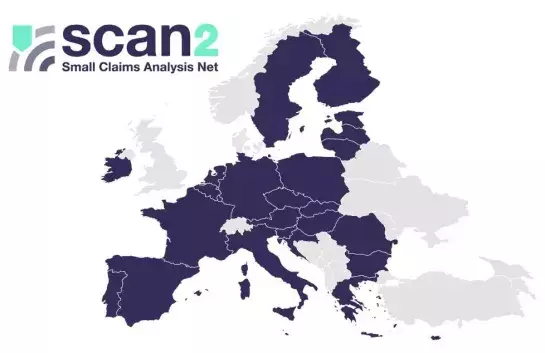
We are pleased to announce the recent publication of the article “Digitalisation of the European Small Claims Procedure through Blockchain”, co-authored by Prof. Marco Giacalone and Dr. Gioia Arnone, in the esteemed Revista Ítalo-Española de Derecho Procesal (Italo-Spanish Journal of Procedural Law), featured in the journal’s forthcoming Special Issue II on Small Claims Procedures.
This scholarly contribution forms part of a broader and timely discussion on the digital transformation of civil justice mechanisms within the European Union. The article explores the potential of blockchain technology as a foundational infrastructure for the European Small Claims Procedure (ESCP), highlighting how distributed ledger systems could enhance transparency, enforceability, cross-border trust, and procedural efficiency.
By integrating the principles of legal certainty, traceability, and tamper-resistance, the authors advance a compelling case for the use of blockchain to address key limitations currently afflicting cross-border enforcement of small claims—particularly in terms of judgment recognition, execution workflows, and data harmonization across jurisdictions.
n their article, Giacalone and Arnone explore the transformative potential of blockchain technology to support and enhance the digitalisation of the ESCP. Their analysis provides a forward-looking perspective on how distributed ledger technology could help address existing inefficiencies and increase trust, traceability, and accessibility in cross-border civil justice mechanisms. https://doi.org/10.37417/rivitsproc/2916
The issue, coordinated by Gina Gioia and developed as part of the SCAN II project, includes valuable insights from other distinguished authors such as Elena D'Alessandro, Tatjana Josipovic, Fulvio Palombino, Michele Angelo Lupoi, and many others — all of whom examine the intersection of technological innovation, procedural reform, and consumer access to justice within the ESCP framework.
You can access the full publication and list of contributors here: https://www.revistasmarcialpons.es/rivitsproc/forthcoming
We extend our congratulations to all the authors involved, and a special thanks to the editorial team for their outstanding coordination of this important scholarly initiative.
This work is another step forward in fostering academic dialogue on the future of digital justice systems and underscores the importance of interdisciplinary collaboration in the implementation of next-generation legal infrastructures.
We invite scholars, practitioners, and policy-makers with an interest in judicial digitalisation, blockchain regulation, and European procedural law to explore this compelling volume.
